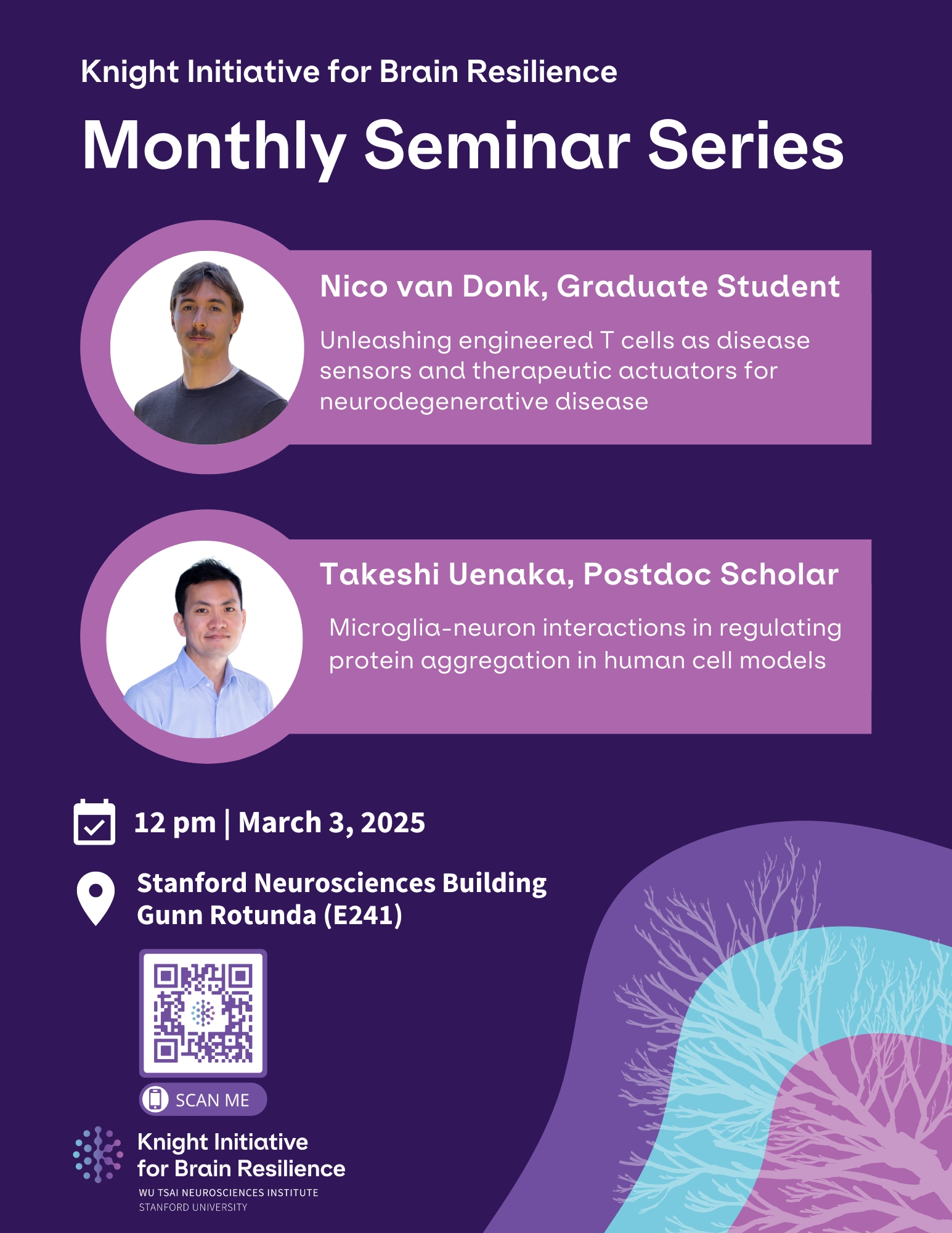The first Monday of each month, the Knight Initiative for Brain Resilience will host monthly seminars to bring together awardees, affiliated professors and students for a series of 'lab meeting' styled talks. Two speakers will discuss their brain resilience research, experiences in the field, and answer questions about their work.
To support our researchers' participation in this open science ‘lab-meeting style’ exchange of ideas, these seminars are not streamed/recorded and are only open to members of the Stanford community.
Nico van Donk, Stanford University
Unleashing engineered T cells as disease sensors and therapeutic actuators for neurodegenerative disease
As our population continues to age, neurodegenerative diseases are increasing. These diseases are caused by loss of nerves from the brain and spinal cord. A growing body of research implicates the immune system as another key driver of neurodegenerative diseases. Our immune system has evolved to fight off foreign invaders (like bacteria and viruses). As we age or if we have genetic alterations, it seems that the immune system undergoes changes that cause it to attack neurons in the brain. Here we explore the novel hypothesis that some of the symptoms of neurodegenerative diseases such as amyotrophic lateral sclerosis and frontotemporal dementia result from attack of altered or dysfunctional neurons by immune cells. We will discuss evidence for this hypothesis and our efforts to harness engineered immune cells as therapies. Immune cells have already been successfully deployed to treat a wide range of cancers. We will present advances in engineering T cells to fight neurodegenerative disease.
Takeshi Uenaka, Stanford University
Microglia-neuron interactions in regulating protein aggregation in human cell models
Abnormal protein accumulation is a key driver of neuronal cell death in many neurodegenerative disorders, including mutant huntingtin (mHTT) in Huntington’s disease. Recent studies suggest microglia, the brain's immune cells, play a role in protein aggregation, as eliminating microglia in mouse models reduces mHTT, amyloid-β, and tau accumulation. However, the mechanisms behind these effects remain unclear.
To address this, we created a 2D and 3D tri-culture system using human pluripotent stem cell-derived neurons, astrocytes, and microglia. This system mimics natural brain interactions without the need for exogenous cytokine addition, preserving spontaneous cellular behavior. Our preliminary findings reveal that microglia influence intraneuronal mHTT aggregation within this model.
The goal of our research is to uncover how microglia modulate mHTT aggregation inside neurons, providing insights into their role in neurodegenerative processes. Understanding this interaction could open new avenues for therapeutic strategies targeting microglia to combat neurodegenerative diseases.


